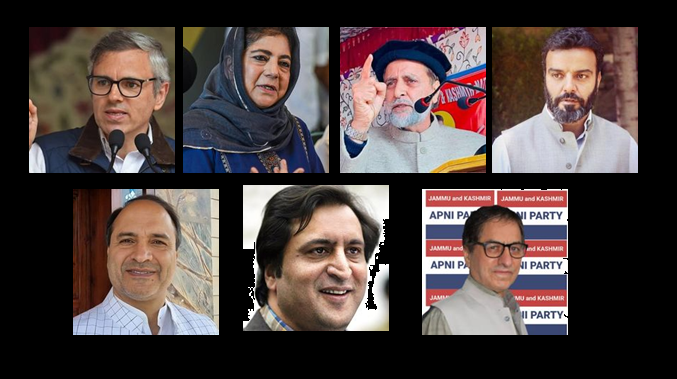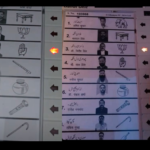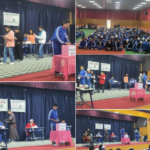April 19,2024
|| Black and White Digital News||
A glimpse of Jammu and Kashmir Lok Sabha Elections 2024: High Stakes, Diverse Candidates, and Five-Phase Voting Unveiled.
In the wake of Jammu and Kashmir’s journey post the abrogation of Article 370, the Union Territory gears up for a crucial democratic milestone with the upcoming Lok Sabha elections. The state, once represented by 6 seats before the bifurcation that led to the formation of Ladakh as a separate Union territory, now focuses on the electoral battle for its 5 parliamentary seats.
The constituencies in question—Baramulla, Srinagar, Anantnag, Udhampur, and Jammu—will witness a heated contest among several prominent political parties, each striving to assert their influence in this diverse region. Key contenders include the Bharatiya Janata Party (BJP), Congress, Jammu & Kashmir National Conference (JKNC), Jammu and Kashmir People’s Democratic Party (JKPDP), Jammu and Kashmir People’s Conference (JKPC), and the Democratic Progressive Azad Party (DPAP).
The Election Commission has delineated a meticulous five-phase voting plan, commencing today, with Udhampur being the first constituency to cast ballots. This will be followed by Jammu on April 26, Anantnag-Rajouri on May 7, Srinagar on May 13, and concluding with Baramulla on May 20. The suspense will unravel on June 4 with the counting of votes.
Reflecting on the previous elections in 2019, the National Democratic Alliance (NDA) clinched 2 seats while JKNC secured 3, with BJP triumphing in Ladakh (a part of J&K at the time).
The battle for the upcoming elections sees the BJP strategically fielding Dr. Jitendra Singh from Udhampur and Jugal Kishore Sharma from Jammu. Conversely, Congress has pinned its hopes on Ch. Lal Singh from Udhampur and Raman Bhalla from Jammu for the 2024 polls.
The Anantnag-Rajouri seat is shaping up to be particularly intriguing, with DPAP replacing its initial nominee, Ghulam Nabi Azad, with Mohammad Saleem Parray to challenge NC’s senior leader Mian Altaf and PDP President Mehbooba Mufti.
In Udhampur, G M Saroori is carrying DPAP’s torch while JKPC leader Sajad Gani Lone will be vying for victory in Baramulla.
The landscape of these elections is imbued with historical significance, symbolizing the aspirations and choices of a region transitioning towards regaining its statehood. As the electoral saga unfolds over the next few weeks, the political landscape of Jammu and Kashmir is poised for a transformative chapter, punctuated by diverse candidacies and widespread participation.
Leave a comment
You Might Also Like
BJP Ne Old Age Pension Band Kar Di Aub 80 Sal Ki Umar Me Auto Chalana Par Raha hai
BJP Ne Old Age Pension Band Kar Di Aub 80 Sal Ki Umar Me Auto Chalana Par Raha hai
0 Min Read
National Conference Ne Mushkil Seat Offer Ki Isliye Humne Apna Candidate Nhi Uttara JKPCC President Tariq Hameed Karra
National Conference Ne Mushkil Seat Offer Ki Isliye Humne Apna Candidate Nhi Uttara JKPCC President Tariq Hameed Karra #Congress #NationalConference…
0 Min Read
Mehraj Malik K Liye Aaj K Din Ek Candle Zarur Jalana Amit Kapoor
Mehraj Malik K Liye Aaj K Din Ek Candle Zarur Jalana Amit Kapoor #mehrajmalik #MehrajMalikAAP #AMITKAPOOR #candlelight #JammuAndKashmir
0 Min Read
Agar Omar Abdullah Sahab Se Govt Nhi Chal Rahi Hai To Ek Mahine BJP Ko Mouka Do Hum Chla Kr Dikhaye Gey BJP Spokesperson Thakur Abhijeet Jasrotia
Agar Omar Abdullah Sahab Se Govt Nhi Chal Rahi Hai To Ek Mahine BJP Ko Mouka Do Hum Chla Kr…
0 Min Read






